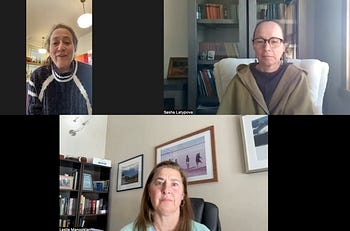Templeton Times
Fluoride Information
Fluoride is a poison. Fluoride was poison yesterday. Fluoride is poison today. Fluoride will be poison tomorrow. When in doubt, get it out.
Saturday, April 5, 2025
42. The Sudbury Valley School: The Underground HIstory of American Education by John Taylor Gatto from archive.org
42. The Sudbury Valley School: The Underground HIstory of American Education by John Taylor Gatto from archive.org
The Sudbury Valley School
I know a school for kids ages three to eighteen that doesn't teach anybody to read, yet everyone who goes there learns to do it, most very well. It's the beautiful Sudbury Valley School, twenty miles west of Boston in the old Nathaniel Bowditch "cottage" (which looks suspiciously like a mansion), a place ringed by handsome outbuildings, a private lake, woods, and acres of magnificent grounds. Sudbury is a private school, but with a tuition under $4,000 a year it's considerably cheaper than a seat in a New York City
public school. At Sudbury kids teach themselves to read; they learn at many different ages, even into the teen years (though that's rare). When each kid is ready he or she self- instructs, if such a formal label isn't inappropriate for such a natural undertaking. During this time they are free to request as much adult assistance as needed. That usually isn't much.
In thirty years of operation, Sudbury has never had a single kid who didn’t learn to read. All this is aided by a magnificent school library on open shelves where books are borrowed and returned on the honor system. About 65 percent of Sudbury kids go on to good colleges. The place has never seen a case of dyslexia. (That's not to say some kids don't reverse letters and such from time to time, but such conditions are temporary and self-correcting unless institutionalized into a disease.) So Sudbury doesn't even teach reading yet all its kids learn to read and even like reading. What could be going on there that we don't understand?
COVID Dossier INTERVIEWS
COVID Dossier INTERVIEWSSasha Latypova and I have done lots of interviews about the COVID Dossier. Here are a few highlights.
NEIL OLIVERFebruary 5th, 2025 This video is so shadow-banned on YouTube that even if you search for “The Secrets Are Out Neil Oliver Debbie Lerman Sasha Latypova” you will not find it!  HEALTH FREEDOM DEFENSE FUND with Leslie ManookianMarch 5th, 2025 Leslie is one of the smartest, fiercest and most effective health freedom fighters we have! Click on the link below for audio and video versions of the interview. https://healthfreedomdefense.org/cohf-ep37/ FLASHLIGHTS podcast with Cornelia MroseRecorded March 14th , 2025 Cornelia is an excellent interviewer and video editor. After two hours, we decided this would be Part 1 — stay tuned for Part 2 some time in May. |
The World Order: The Rothschilds: Chapter two
The World Order: The Rothschilds: Chapter two
The Rothschilds
"Let
me but issue and control a nation's money, and I care not who writes its
laws."
Mayer Amshel Bauer (Rothschild).
Rise of the Rothschild Money Network
In its issue of Dec. 19, 1983, Forbes Magazine noted that "Half of Germany's top ten banks are Frankfurt based." The modern world's financial system, an updating of the Babylonian monetary system of taxes and money creation, was perfected in Frankfurt-on-Main, in the province of Hesse. Mayer Amschel Bauer(later Rothschild) discovered that although loans to farmers and small businesses could be profitable, the real profits lay in making loans to governments. Born in Frankfurt in 1743, Mayer Amschel married Gutta Schnapper. He served a three year apprenticeship in Hanover at the Bank of Oppenheim. During this period, he had occasion to be of service to Lt. Gen. Baron von Estorff. von Estorff was the principal adviser to Landgrave Frederick II of Hesse, the wealthiest man in Europe. Frederick was worth from 70 to 100 million florins, much of it inherited from his father, Wilhelm the Eighth, brother of the King of Sweden. Baron von Estorff advised the Landgrave that Mayer Amschel showed an uncanny ability to increase money through his investments. The Landgrave immediately sent for him.
At this time, King George III was trying to put down the American Rebellion. His troops were being out fought by the hardy Americans, who were accustomed to wilderness battles. Mayer Amschel arranged for King George to hire 16,800 sturdy young Hessian soldiers from the Landgrave, a considerable addition to the Hesse's fortune. This advantageous relationship came to a halt with the sudden death in 1785 of the Landgrave, who was only twenty-five years old. However, Mayer Amschel attained absolute influence over his successor, Elector Wilhelm I, who, like Mayer Amschel, had also been born in 1743. It was said that they were like two shoes, so well did they go together. It was a pleasant change from Mayer Amschel's relationship with the former Landgrave, who had been a very difficult and demanding person. In fact, the Landgrave's sudden death had luckily placed Mayer Amschel in charge of the largest fortune in Europe.
No Joke: This Law Is Designed to Protect Vaccine Makers, Not Kids
Policy
No Joke: This Law Is Designed to Protect Vaccine Makers, Not Kids
The time for being fooled is over. The National Childhood Vaccine Injury Act was not a public health victory. It was a legislative coup for vaccine manufacturers, granting them unprecedented legal immunity while leaving the injured with few avenues for justice.

It might be April Fools’ Day, but this law is no joke!
Since 1986, the public has been sold the idea that the National Childhood Vaccine Injury Act (NCVIA) was a necessary safeguard — an essential measure to ensure a stable supply of life-saving vaccines.
But the reality is that it was not a public health victory; it was a legislative coup for vaccine manufacturers, granting them unprecedented legal immunity while leaving the injured with few avenues for justice.
The time for being fooled is over.
A law that protects industry over the injured
The 1986 Act was born out of mounting lawsuits against vaccine manufacturers, particularly over the diphtheria-tetanus-pertussis (DTP) vaccine.
In the early 1980s, parents of vaccine-injured children began successfully suing manufacturers, winning multi-million-dollar settlements.
Pharmaceutical companies, fearing further legal battles, threatened to withdraw from the vaccine market altogether.
But instead of enforcing stricter safety standards or demanding better oversight, Congress capitulated to industry pressure.
mRNA Vaccines Linked to Genetic Changes That Can Cause Cancer, Autoimmune Disorders
Toxic Exposures
mRNA Vaccines Linked to Genetic Changes That Can Cause Cancer, Autoimmune Disorders
A peer-reviewed study by 19 German researchers links the mRNA COVID-19 vaccines to long-term changes in genetic structures that can provoke an inflammatory response, and lead to the onset of cancer and autoimmune disorders.

Listen to this article
A new peer-reviewed study links the mRNA COVID-19 vaccines to long-term changes in genetic structures that can provoke an inflammatory response, and lead to the onset of cancer and autoimmune disorders.
The study by 19 German scientists was published last week in Molecular Systems Biology. The researchers said their findings may account for “post vaccination inflammatory diseases which occur in a small number of vaccinated individuals.”
Journalist Alex Berenson said the study shows that mRNA vaccines can alter human chromosomes in ways linked to leukemia and brain tumors. This occurs when the mRNA vaccines “train” immune cells to sustain a pro-inflammatory immune response.
According to epidemiologist Nicolas Hulscher, “This study adds to the large body of evidence describing potent immune dysregulating effects of mRNA injections.”
Hulscher said the study raises “serious concerns about long-term immune homeostasis and the potential for chronic inflammatory disease, autoimmune sequelae, and even oncogenic processes.”
Immunologist and biochemist Jessica Rose, Ph.D., said the study confirms what is already known about the risks of mRNA vaccines. She said:
“Repeat injection leads to a boatload of immunological modifications. This is not new information. We know that these kinds of changes can occur. It is not surprising to me that they found this.
“If the systemic reach goes far enough, such as to stem cells, then repeated injection could potentially induce epigenetic changes in these cells, especially since hematopoietic stem cells are known to develop innate immune memory in response to certain stimuli like infections or other vaccines.”
Epigenetics refers to how human behavior and the environment can cause changes that affect how genes work. According to Berenson, the changes caused by the mRNA COVID-19 shots are epigenetic, as “they occur around DNA’s core and activate genes in ways that can promote tumor growth.”
“The risk here is, of course, prolonged and excessive inflammation, which might contribute to tissue damage or chronic inflammatory conditions in some contexts, which we do see in pharmacovigilance data,” Rose said.
Foreign biological matter introduced into the blood through natural wounds and artificial wounds.
Thank you for reading and sharing Bailiwick News by email and social media. To support Bailiwick with a paid subscription: Marc Girardot posed a question about Sasha Latypova’s views. Sasha wrote, in her MAHA bravely fights Big Soda post:
Girardot commented:
My reply: I can’t speak for Sasha. I didn’t know what bolus theory was until I did a search on it just now. I don’t think the introduction of biological agents and toxic chemicals into the bloodstream through vaccination is accidental or inadvertent. |
